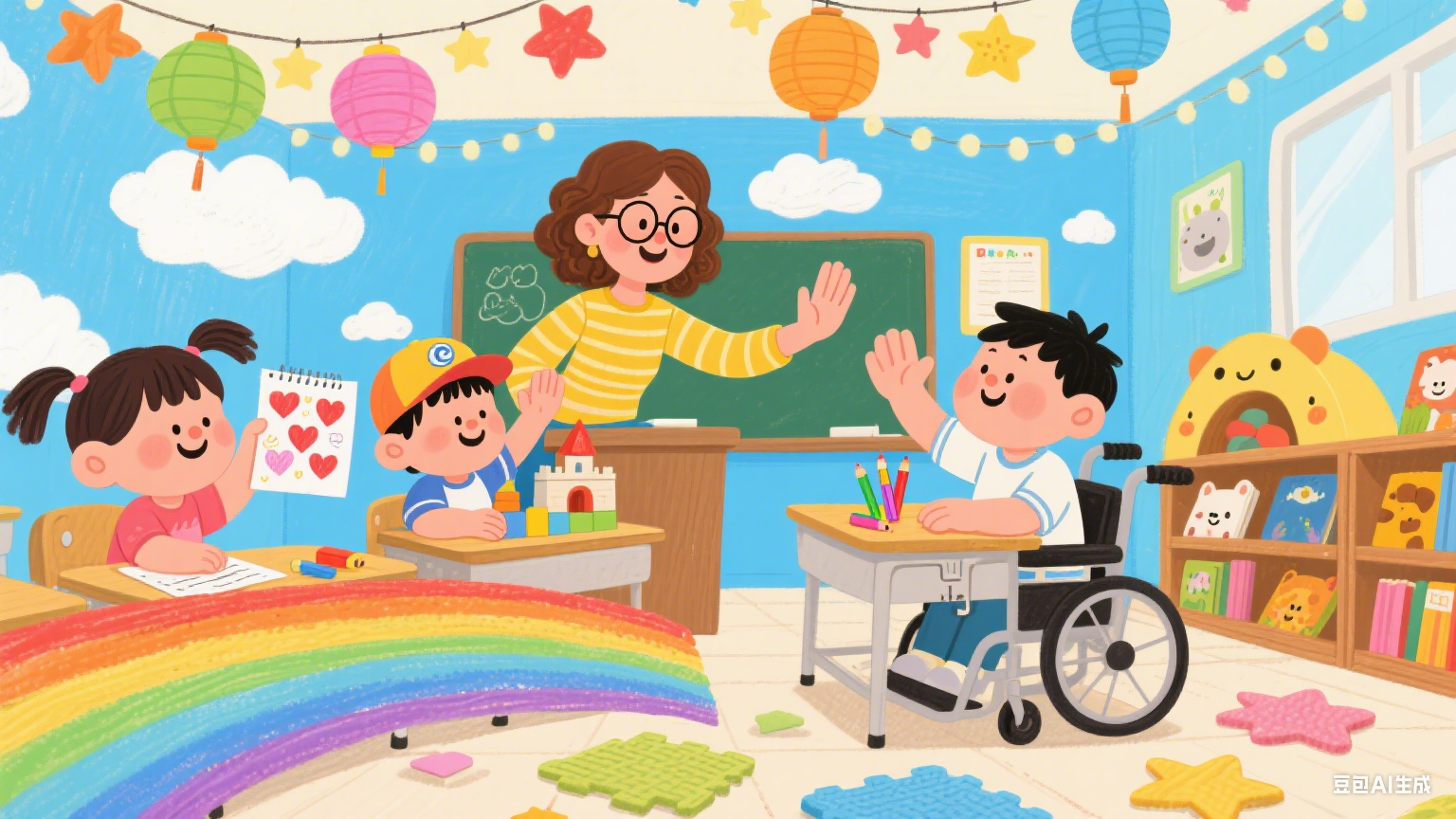
With the rapid development of technology, AI can now grade homework and online courses, making learning more accessible than before. But this raises a question: if machines can do some teaching work, what makes human teachers special and irreplaceable?
One key role of teachers is to provide emotional support and motivation. Unlike AI, teachers can see and understand how students feel — frustration, boredom, or curiosity — and adjust their approach to help. For example, a teacher in a rural area may use local dialect to explain something difficult, making students feel respected and understood. This kind of caring interaction helps students feel they belong and encourages them to learn more.
Besides, teachers are important in helping students shape their values and character. Education is not only about knowledge; it is also about building good judgment and thinking skills. When a student struggles with fairness in a group task or faces an ethical dilemma, the teacher can help by leading a discussion and thinking. AI might give facts about ethics, but it cannot show compassion, honesty, or social responsibility like a human teacher can.
Teachers are also better at handling unexpected situations. The classroom is always changing — unexpected questions, disagreements, or teachable moments often come up. Teachers can think on their feet — whether it’s solving a sudden argument, changing the lesson when technology fails, or using special methods to reach different learners. For example, teachers in special education often use body language or touch to help students with disabilities. This kind of quick thinking and adaptability is something AI does not have.
What’s more, good teaching depends on relationship and trust. Students push themselves and overcome difficulties when they feel their teacher sees, values, and supports them. A machine might correct grammar or math perfectly, but it can’t look a student in the eye and say, “I believe you can do it.” That kind of human encouragement can change a student’s life.
Technology is a useful tool for education, but it cannot replace the human touch in teaching. Teachers offer care, values, spontaneous support, and above all, they inspire students through genuine human connection, not technology.
1.1.According to Paragraph 2, how do teachers help students in rural areas?
A Use local dialect.
B Offer online courses.
C Correct homework quickly.
D Provide advanced technology.
解析:选A。A 细节理解题。第二段提到“For example, a teacher in a rural area may use local dialect to explain something difficult, making students feel respected and understood.”乡村教师可能使用方言解释难题,使学生感到被尊重和理解。故选A。
2.2.What can we infer about teachers from Paragraph 3?
A They focus more on knowledge.
B They assist in character building.
C They use technology to teach ethics.
D They avoid discussing moral issues.
解析:选B。B 细节理解题。第三段中的“Besides, teachers are important in helping students shape their values and character.”强调教师不仅传授知识,还帮助学生建立判断力和培养学生性格。故选B。
3.3.What does the underlined phrase “think on their feet” mean in Paragraph 4?
A Stand for long hours.
B React quickly.
C Use physical gestures.
D Follow strict rules.
解析:选B。B 词义猜测题。划线短语前面两句“Teachers are also better at handling unexpected situations. The classroom is always changing — unexpected questions, disagreements, or teachable moments often come up.”提到,教师更善于处理突发情况。课堂总是在变化——意想不到的问题、分歧或可教的时刻经常出现。因此划线部分“think on their feet”指教师能够即兴应变。故选B。
4.4.What is the main idea of the passage?
A Technology improves teaching efficiency.
B AI can replace human teachers in the future.
C Human teachers have unique irreplaceable roles.
D Online courses are more accessible for students.
解析:选C。C 主旨大意题。全文通过情感支持、价值观塑造、应变能力和人际信任等方面对比AI与人类教师,突出人类教师的不可替代性。故选C。